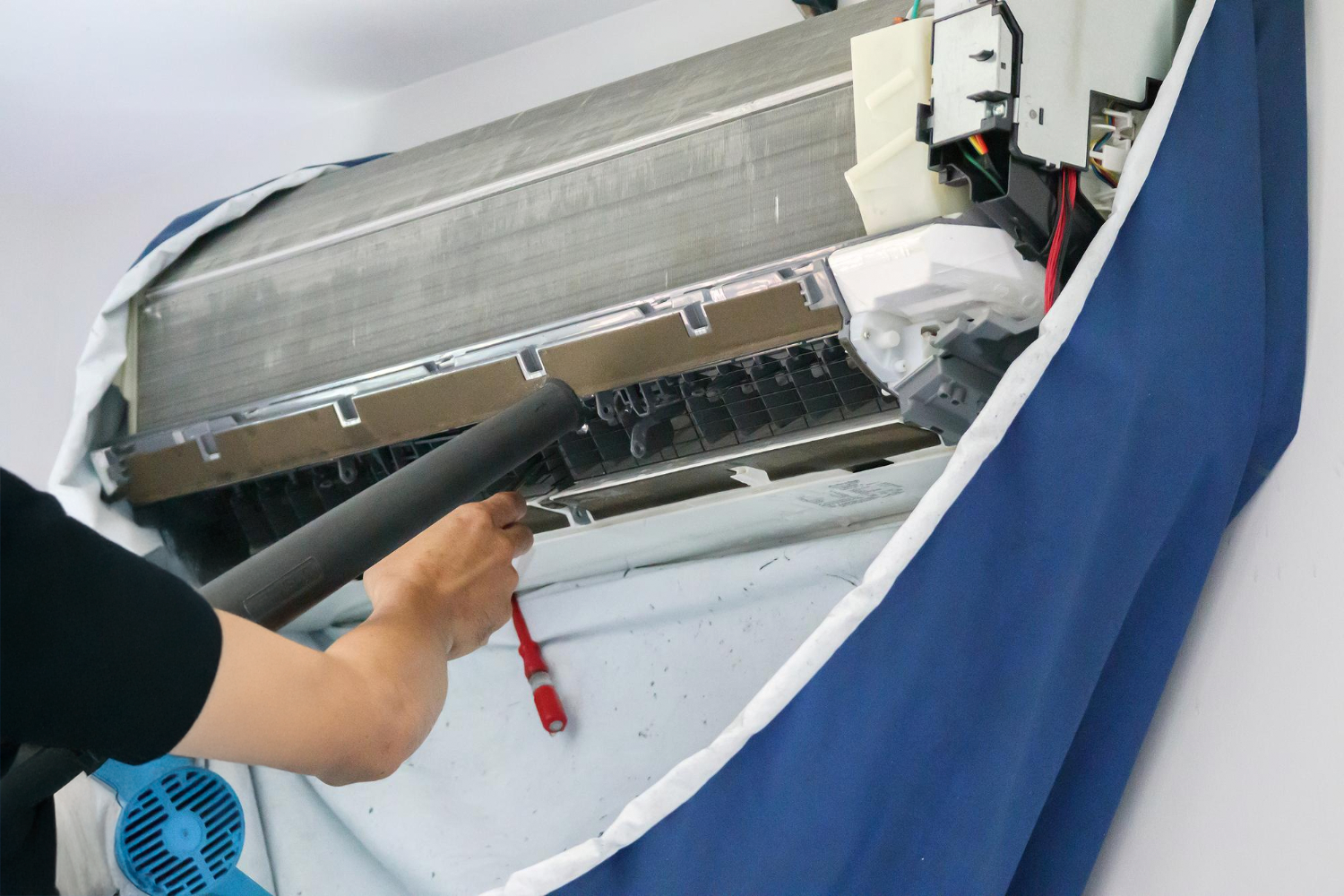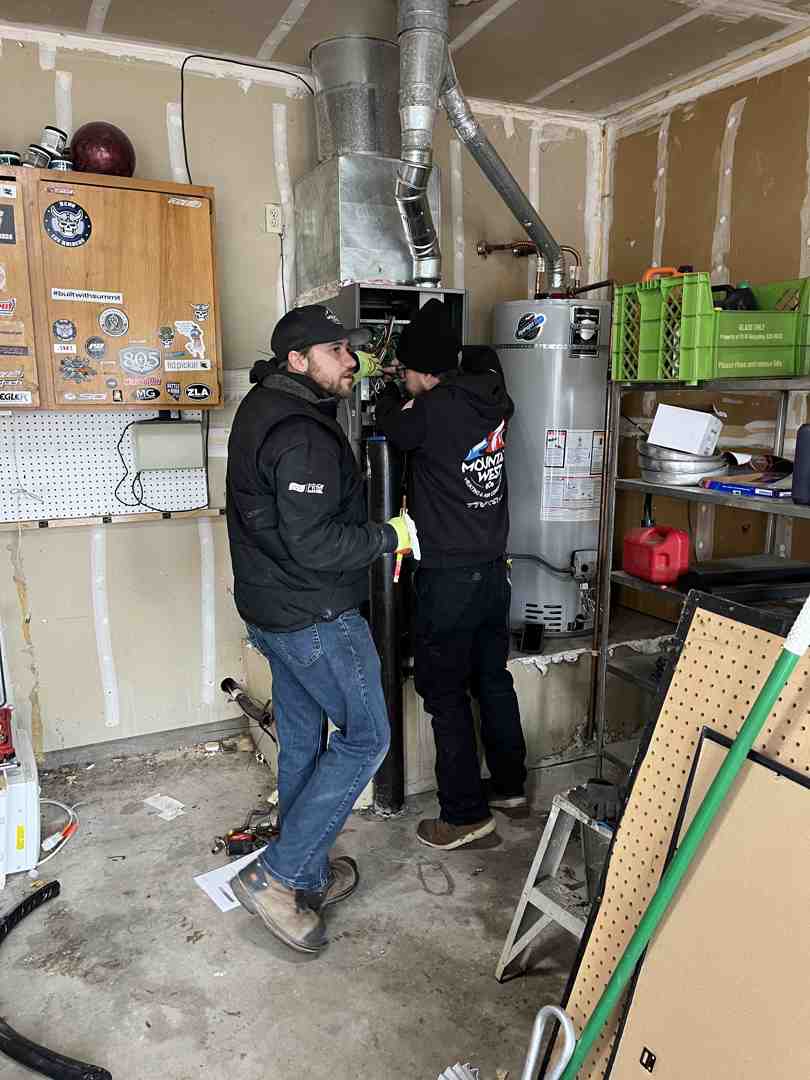As spring approaches, now is the ideal time to give your HVAC system the attention it deserves. Winter puts extra strain on heating components, while summer will soon demand peak cooling performance. Getting ahead of these seasonal shifts ensures your system runs efficiently when you need it most.
This timing allows technicians to clean components, check refrigerant levels, and identify potential issues while the weather is still mild. Your system will be ready to handle the upcoming temperature changes, giving you peace of mind and comfort throughout the changing seasons.
HVAC maintenance twice a year can save you hundreds of dollars through improved energy efficiency and prevention of costly breakdowns. Furthermore, manufacturer warranties often require this bi-yearly service to remain valid. By scheduling maintenance now, you're not just optimizing performance—you're protecting your investment.
Understanding Your HVAC System
Your HVAC system works quietly behind the scenes to keep you comfortable year-round. Knowing how it functions and maintaining it properly can save you money and prevent unexpected breakdowns.
Components and Functionality
The typical HVAC system consists of several key components:
- The furnace heats air during colder months
- The air conditioner cools it when temperatures rise
- An evaporator coil transfers heat
- The condensing unit releases that heat outside
- The blower motor circulates air throughout your home via ductwork.
- Air filters trap dust, allergens, and pollutants to keep your indoor air clean
- Humidity control maintains optimal moisture levels in your home.
- A thermostat tells your system when to turn on and off based on your temperature settings.
The Importance of Regular Maintenance
Regular HVAC maintenance extends system lifespan by up to 40%, saving thousands on premature replacement costs. Schedule a professional tune-up before high-demand seasons. During maintenance visits, technicians clean components, check refrigerant levels, inspect electrical connections, and calibrate your thermostat. These preventive steps help your system run efficiently, reducing energy bills by 15-20%.
Regular maintenance also improves indoor air quality by removing built-up allergens and pollutants. This is especially important for households with allergies or respiratory conditions. Most importantly, routine check-ups identify small issues before they become major problems. This preventive approach helps you avoid emergency repairs during extreme weather when you need your system most.
The Benefits of Seasonal Servicing
Seasonal HVAC maintenance delivers significant advantages for homeowners who want to maximize their system's performance and save money. Regular service visits help identify potential issues before they become expensive problems.
Optimal Performance and Efficiency
Seasonal HVAC maintenance ensures your system runs at peak efficiency. During maintenance visits, technicians clean or replace air filters, which improves airflow and reduces strain on your system. Dirty filters can restrict airflow by up to 15%, forcing your HVAC to work harder and use more energy.
Experts will also check and clean condenser coils during maintenance visits, preventing the dirt buildup that can reduce efficiency by 30% or more. Technicians also verify refrigerant levels are optimal, as improper levels can increase energy usage by 5-20%.
Proper maintenance leads to lower utility bills, as a well-maintained HVAC system uses significantly less energy, with some homeowners reporting savings of 15-30% on monthly energy costs. Plus, your home stays more comfortable with fewer hot or cold spots.
Longevity and Cost Savings
Most systems should last 15-20 years, but without proper care, they might fail after 10 years or less. Preventive maintenance helps identify small issues before they become major repairs. A simple $100-200 maintenance visit can help avoid emergency repairs that cost $500-1,500 or more. This makes seasonal servicing a smart financial decision.
HVAC systems last 5-7 years longer when properly maintained. This translates to thousands of dollars in delayed replacement costs, making seasonal maintenance one of the best investments for homeowners. Many manufacturers also require proof of regular maintenance to maintain warranty coverage. Without it, you could be responsible for the full cost of parts that would otherwise be covered.
When to Schedule HVAC Maintenance
Timing your HVAC maintenance correctly helps prevent system failures when you need your heating or cooling the most. Regular maintenance keeps your system running efficiently and extends its lifespan.
Best Time of Year for a Tune-Up
Spring and fall are ideal seasons for HVAC maintenance. Scheduling air conditioning maintenance in early spring (March-April) gives you time to address any issues before you need constant cooling. For heating systems, schedule maintenance in early fall (September-October) before the cold weather sets in. This timing ensures your furnace is ready when temperatures drop.
Signs Your System Needs Servicing
Don't wait for scheduled maintenance if you notice these warning signs:
- Unusual noises like grinding, squealing, or banging
- Higher energy bills without increased usage
- Uneven heating or cooling throughout your home
- Poor airflow from vents
- Frequent cycling (turning on and off repeatedly)
Your HVAC system might also need immediate attention if it produces unusual odors or if humidity levels in your home seem off. Don't ignore water leaks around your unit or visible frost on components.
Choosing the Right HVAC Technician
Selecting a qualified professional to service your HVAC system can make all the difference in both the performance and longevity of your equipment. The right technician will not only fix immediate problems but also help prevent future issues.
Qualifications and Experience
When searching for an HVAC technician, certification should be your priority, so look for professionals with NATE (North American Technician Excellence) certification or similar credentials that demonstrate proper training. Experienced technicians typically have at least 3-5 years of field work under their belt.
Check online reviews and ask for references before making your decision. A reputable company will happily provide testimonials from satisfied customers. Also, ask potential technicians about their experience with your specific brand and model. Some HVAC systems require specialized knowledge, especially newer, more efficient models.
What to Expect During a Service Appointment
A thorough HVAC service appointment should last between 60-90 minutes, and the technician should begin by discussing any concerns you've noticed with your system. During the inspection, expect the technician to check refrigerant levels, test electrical components, and clean key parts of your system. They should examine both indoor and outdoor units if you have a split system.
After completing their work, a good technician will explain what they found and what they did to address any issues. They should also provide documentation of the service performed. If there are problems, the technician should provide a clear breakdown of costs before performing any repairs beyond routine maintenance.
Get in touch to arrange your next HVAC inspection.








